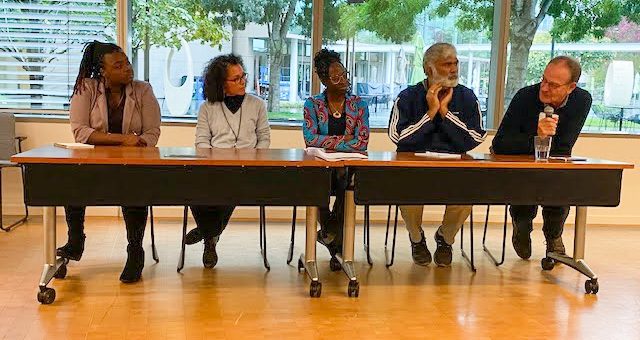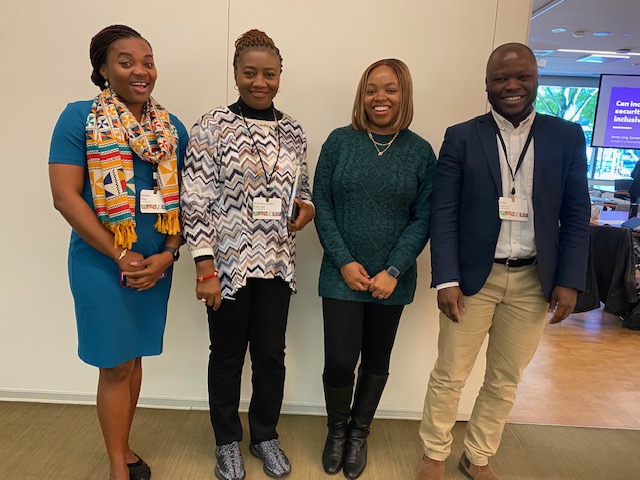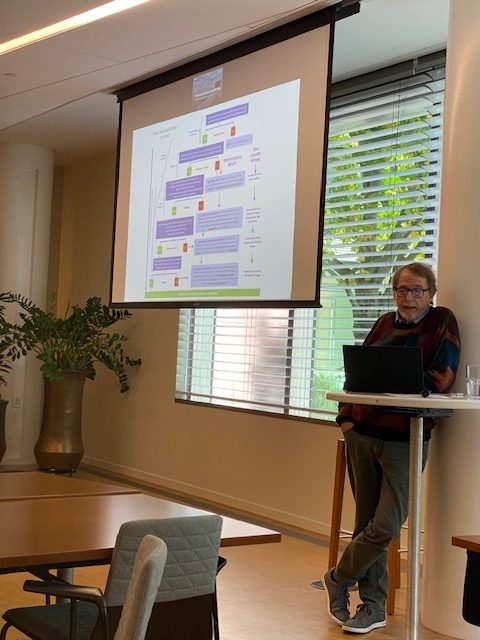We are excited to announce the launch of the Center on Risk and Inclusion in Food Systems (CRIFS) a partnership of the University of Washington’s Evans School of Public Policy & Governance, The Bill & Melinda Gates Foundation (BMGF), and the Evans School Policy Analysis & Research Group (EPAR).
CRIFS’ mission is to generate policy and action-focused research for improving the lives and livelihoods of small-scale agricultural producers (SSPs), inclusive of women, in low- and middle-income countries, through increased contributions of social, climate, and other scientists to advancing cost-effective strategies for managing risks and volatility as food systems transform.
The CRIFS launch kicked off on the UW campus with a technical workshop on measuring resilience in collaboration with UC Davis Professor Michael Carter and his USAID Feed the Future Lab on October 16. A day of small working group meetings was followed by a learning event co-hosted by CRIFS and BMGF, focused on topics central to investing in food systems facing heightened climate and associated risks in South Asia and sub-Saharan Africa. The event brought together a blend of donors, practitioners, and researchers to provide a common grounding in key concepts and definitions, current and projected climate risks faced by food systems actors, and the state of applied research.
The six sessions of the learning event covered the broad themes of risk measurement, sub-national heterogeneity, statistical vs. perceived risk, and decision-making under uncertainty, with a strong emphasis on perspectives and methods that embed gender and nutrition dimensions.
- Session 1: Risk Fundamentals 1 – Biophysical food system risks and SSPs
- Chris Funk (UCSB), Mario Herrero (Cornell), Tess Russo (BMGF), and Heidi Webber (ZALF)
- Session 2: Bringing Risk, Nutrition, and Gender into South Asian Climate Platforms and Policies
- Pramod Aggarwal (Borlaug Institute for South Asia), Prabhu Pingali (Cornell), and Shelly Sundberg (BMGF)
- Session 3: Risk Fundamentals 2 – Decision-making and Behavior Change: Risk Perceptions, Poverty, and Risk Communication
- Ann Bostrom (UW), Alison Cullen (UW), and Crystal Hall (UW)
- Session 4: SSP Commercialization and Income Diversification under Risk: Institutions, Infrastructure and the Enabling Environment
- Stanley Wood (BMGF), Ana Paula de la O Campos (FAO), Ken Giller (Wageningen), Avinash Kishore (IFPRI), June Lukuyu (UW), Saweda Liverpool-Tasie (MSU), and Shelly Sundberg (BMGF)
- Session 5: Advancing Measurement of Post-Shock Resilience
- Peter Agamile (UW), Michael Carter (UC Davis), and Jenny Frankel-Reed (BMGF)
- Session 6: Can Increased Food Security Strengthen Inclusive Institutions?
- Didier Alia (UW), James Long (UW), Sameer Shah (UW)


